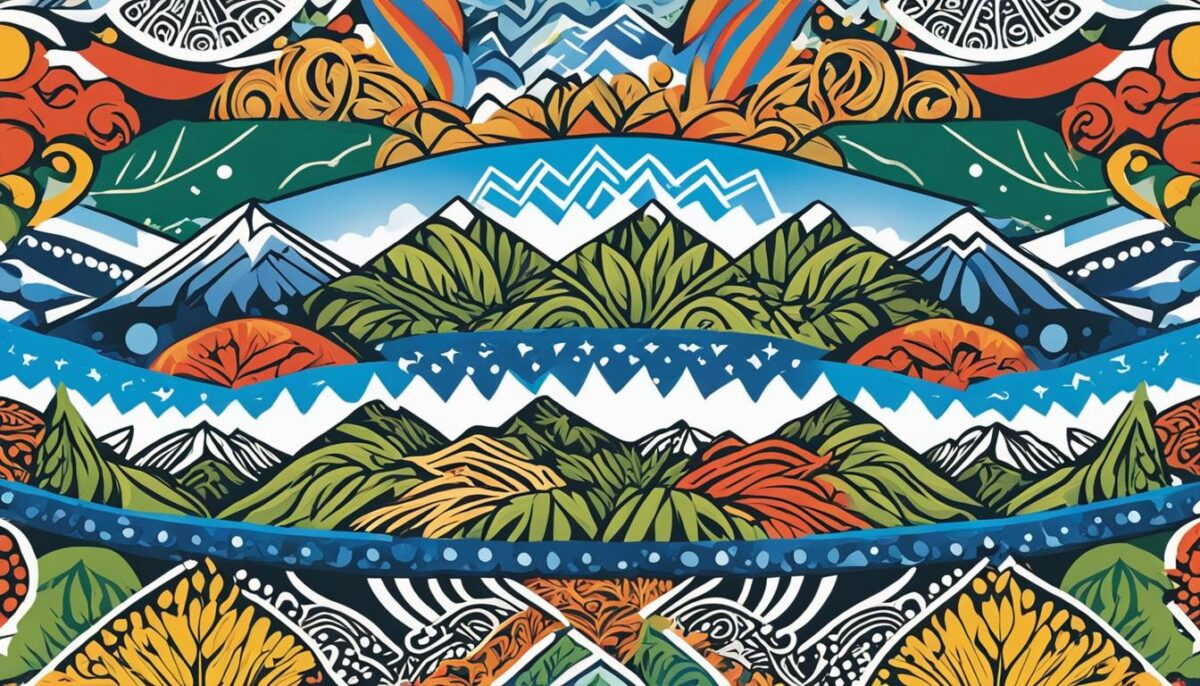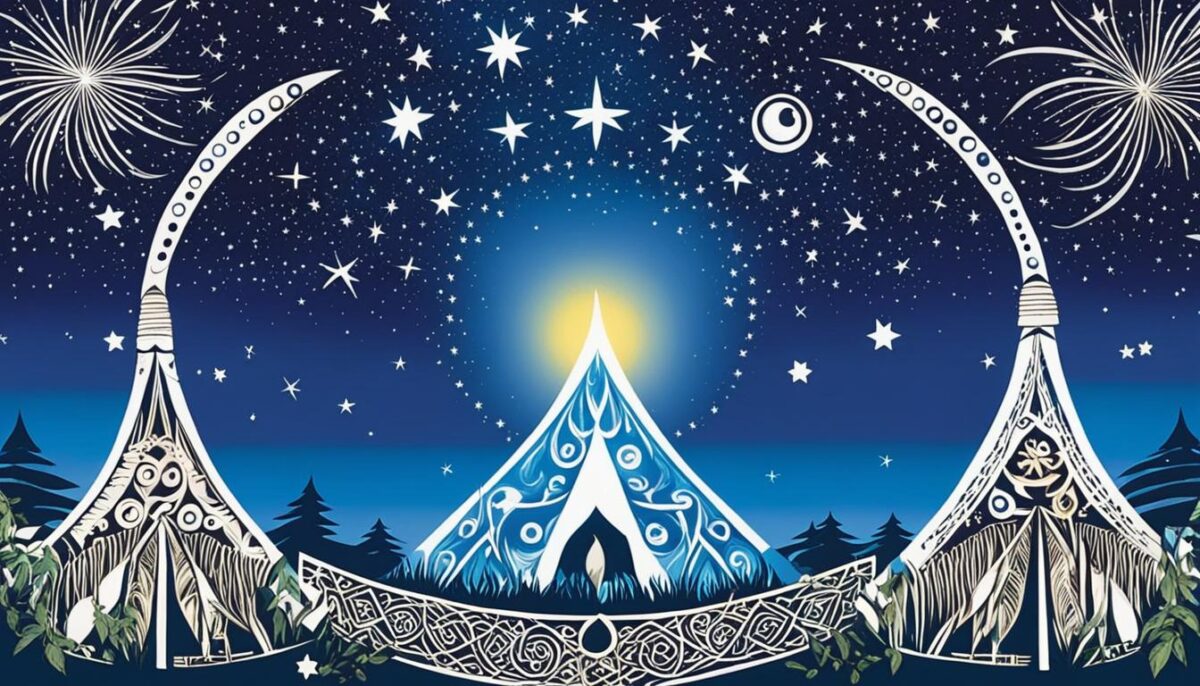Welcome to our exploration of the rich history and enduring presence of the Maori in New Zealand. From ancient times to the present day, the Maori people have played a vital role in shaping the cultural fabric of this beautiful country. Join us on this journey as we delve into their vibrant history and discover how Maori tradition and customs have left an indelible mark on New Zealand society.
From the moment of their arrival, the Maori have formed an integral part of New Zealand’s identity. Their story is one of resilience, adaptation, and cultural preservation, spanning over many centuries. As we unravel the fascinating narrative of Maori presence, we’ll explore the initial migration and settlement, the rich tapestry of Maori culture and traditions, and the ongoing influence of the Maori people on contemporary New Zealand.

Show a timeline of Maori arrival in New Zealand, highlighting key events and changes that occurred over time. Include elements of Maori culture, such as carving, weaving, and traditional dress, to visually represent the lasting impact Maori have had on New Zealand. Use a color scheme that evokes the natural beauty of New Zealand’s landscape, incorporating elements like mountains, forests, and water features to create a sense of place and history.
Join us as we embark on a journey through time and dive into the captivating world of the Maori in New Zealand. Discover the enduring presence of the Maori people, their deep-rooted connection to the land, and the contributions they continue to make to the vibrant tapestry of New Zealand’s multicultural society. Let’s celebrate and honor the rich heritage and cultural legacy of the Maori in this captivating exploration.
The Arrival of the Maori in NZ
When discussing the history of Maori in New Zealand, it is essential to understand the period of their arrival, settlement, and migration. The Maori, as the indigenous people of New Zealand, have a unique and enduring presence in the country.
There are several theories surrounding the initial arrival of the Maori in New Zealand. One popular theory suggests that they migrated from Eastern Polynesia, navigating vast stretches of the Pacific Ocean using celestial navigation and traditional seafaring practices.
Archaeological evidence and oral traditions also provide insights into the early years of Maori presence in New Zealand. The settlement and migration of the Maori gradually shaped the cultural landscape of the country, establishing communities and cultivating connections with the land.
Understanding the arrival of the Maori in New Zealand is not only a significant part of the country’s history but also highlights the resilience and resourcefulness of the Maori people. Their journey across the Pacific Ocean speaks to their seafaring skills and deep connection to their ancestral lands.
The migration of the Maori to New Zealand stands as a testament to their enduring spirit and determination, shaping the country’s culture and society for centuries.
Theories of Arrival
There are various theories regarding the arrival of the Maori in New Zealand. While the exact details may differ, these theories collectively contribute to our understanding of their settlement.
- Polynesian Origins: The prevailing belief is that the Maori originate from Polynesia, specifically the islands of Tahiti and the Cook Islands. This theory suggests that the Maori migrated to New Zealand in multiple waves over a significant period.
- Kupe’s Voyage: According to Maori mythology, the legendary Polynesian navigator Kupe sailed to New Zealand from Hawaiki, a mythical ancestral homeland. This story symbolizes the Maori connection to their origins and their enduring bond with the land.
- Genetic Studies: Genetic research has also provided insights into the Maori migration. Studies have traced the ancestral origins of the Maori to Eastern Polynesia, supporting the theory of their migration from this region.
While each theory offers a unique perspective, they collectively highlight the enduring presence of the Maori in New Zealand and their deep-rooted connections to their ancestral lands.
| Maori Arrival Theories | Summary |
|---|---|
| Polynesian Origins | Belief that the Maori migrated in waves from Polynesia, specifically Tahiti and the Cook Islands. |
| Kupe’s Voyage | Maori mythology states that the legendary navigator Kupe sailed from Hawaiki to New Zealand, establishing their connection to their ancestral homeland. |
| Genetic Studies | Genetic research supports the migration of the Maori from Eastern Polynesia, providing scientific evidence for their ancestral origins. |
Maori Culture and Traditions
The Maori culture in New Zealand is a tapestry of rich customs, arts, language, and spiritual beliefs that have been passed down through generations. Fueled by a deep connection to the land and a strong sense of community, Maori culture is an integral part of New Zealand’s identity.
One of the defining aspects of Maori culture is their unique customs, which encompass a wide range of traditional practices. These customs are deeply rooted in the principles of manaakitanga (hospitality), whanaungatanga (kinship), and kaitiakitanga (guardianship of the environment). From the sacred powhiri (welcome ceremony) to the intricate art of ta moko (traditional tattooing), each custom holds special significance and reflects the values and beliefs of the Maori people.
The arts play a vital role in Maori culture, serving as a means of storytelling, expression, and the preservation of traditions. Maori arts encompass a diverse range of practices, including carving, weaving, and performing arts such as haka (war dances) and waiata (songs). These arts not only showcase the immense creativity and craftsmanship of Maori artisans but also provide a powerful medium for cultural transmission and the celebration of identity.
Language holds a central place in Maori culture, as it serves as a vessel for ancestral knowledge and a tool for cultural preservation. Te Reo Maori, the language of the Maori people, is an official language of New Zealand and is taught and spoken throughout the country. Efforts to revitalize the Maori language have been instrumental in strengthening cultural identity and fostering a sense of pride among Maori communities.
Maori spiritual beliefs are deeply intertwined with nature and the concepts of whakapapa (genealogy) and kaitiakitanga (guardianship). The spiritual world, known as Te Ao Marama, is seen as interconnected with the physical world. Traditional rituals and practices such as karakia (prayers) and the recognition of tapu (sacredness) are essential in maintaining balance and harmony within the Maori worldview.

Create an image that showcases the rich and vibrant history of Maori culture through the lens of time. Depict how the Maori people have adapted to the land and sea since their arrival in New Zealand, highlighting their unique traditions and customs that have been passed down for generations. Use imagery that evokes a sense of profundity and awe for the longevity of this ancient culture, such as incorporating natural elements like rocks, trees, and water.
Overall, Maori culture and traditions are not static entities but living expressions of a vibrant and enduring heritage. Their influence can be felt in various aspects of contemporary New Zealand society, from art and literature to politics and governance. As New Zealand embraces its multicultural identity, the Maori culture and traditions continue to play a pivotal role in shaping the nation’s collective identity and fostering a sense of unity and belonging.
Maori NZ Today and the Future
The Maori people of New Zealand continue to play a significant role in shaping the contemporary landscape of the country. Their rich cultural heritage and enduring traditions have made a profound impact on various aspects of society.
In the realm of politics, Maori leadership and representation have witnessed notable growth. The establishment of the Maori seats in the New Zealand Parliament has ensured indigenous voices are heard and esteemed. This unique political arrangement embraces inclusivity and helps promote Maori perspectives on critical issues that affect the wider population.
Education is another arena where the Maori have contributed to the country’s future. Efforts to incorporate Maori language and cultural education into school curricula have gained momentum, fostering greater understanding and appreciation among students. This commitment to cultural revitalization not only preserves the richness of Maori heritage but also ensures a more inclusive and diverse future for New Zealand.
In the arts, Maori influence is unmistakable. From traditional carving and weaving to contemporary music, dance, and film, Maori culture continues to inspire and captivate audiences around the world. This creativity serves as a bridge between the past and the future, highlighting the Maori contribution to New Zealand’s artistic and cultural identity.


